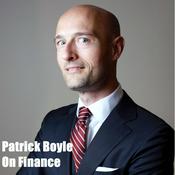221 episodes
- Welcome to Exponential View, the show where I explore how exponential technologies such as AI are reshaping our future. I've been studying AI and exponential technologies at the frontier for over ten years. Each week, I share some of my analysis or speak with an expert guest to make light of a particular topic.
To keep up with the Exponential transition, subscribe to this channel or to my newsletter: https://www.exponentialview.co/
----
In this episode, I'm joined by Jaime Sevilla, founder of Epoch AI; Hannah Petrovic from my team at Exponential View; and financial journalist Matt Robinson from AI Street. Together we investigate a fundamental question: do the economics of AI companies actually work?
We analysed OpenAI's financials from public data to examine whether their revenues can sustain the staggering R&D costs of frontier models.
The findings reveal a picture far more precarious than many assume; we also explore where the real infrastructure bottlenecks lie, why compute demand will dwarf energy constraints, and what the rise of long-running agentic workloads means for the entire industry.
Read the study here: https://www.exponentialview.co/p/inside-openais-unit-economics-epoch-exponentialview
We covered:
(00:00) Do the economics of frontier AI actually work?
(02:48) Piecing together OpenAI's finances from public data
(05:24) GPT-5's "rapidly depreciating asset" problem
(13:25) Why OpenAI is flirting with ads
(17:31) If you were Sam Altman, what would you do differently?
(22:54) Energy vs. GPUs; where the real infrastructure bottleneck lies
(29:15) What surging compute demand actually looks like
(33:12) The most surprising finding from the research
(38:02) The race to avoid commoditization
(43:35) Agents that outlive their models
Where to find me:
Exponential View newsletter: https://www.exponentialview.co/
Website: https://www.azeemazhar.com/
LinkedIn: https://www.linkedin.com/in/azhar/
Twitter/X: https://x.com/azeem
Where to find Jamie: https://epoch.ai or https://epochai.substack.com
Where to find Matt: https://www.ai-street.co
Production by supermix.io and EPIIPLUS1 Production and research: Chantal Smith and Marija Gavrilov.
Hosted by Simplecast, an AdsWizz company. See pcm.adswizz.com for information about our collection and use of personal data for advertising. - Welcome to Exponential View, the show where I explore how exponential technologies such as AI are reshaping our future. I've been studying AI and exponential technologies at the frontier for over ten years.
Each week, I share some of my analysis or speak with an expert guest to make light of a particular topic.
To keep up with the Exponential transition, subscribe to this channel or to my newsletter: https://www.exponentialview.co/
-----
A week before OpenClaw exploded, I recorded a prescient conversation with Mustafa Suleyman, CEO of Microsoft AI and co-founder of DeepMind. We talked about what happens when AI starts to seem conscious – even if it isn’t. Today, you get to hear our conversation.
Mustafa has been sounding the alarm about what he calls “seemingly conscious AI” and the risk of collective AI psychosis for a long time. We discussed this idea of the “fourth class of being” – neither human, tool, nor nature – that AI is becoming and all it brings with it.
Skip to the best bits:
(03:38) Why consciousness means the ability to suffer
(06:52) "Your empathy circuits are being hacked"
(07:23) Consciousness as the basis of rights
(10:47) A fourth class of being
(13:41) Why market forces push toward seemingly conscious AI
(20:56) What AI should never be allowed to say
(25:06) The proliferation problem with open-source chatbots
(29:09) Why we need well-paid civil servants
(30:17) Where should we draw the line with AI?
(37:48) The counterintuitive case for going faster
(42:00) The vibe coding dopamine hit
(47:09) Social intelligence as the next AI frontier
(48:50) The case for humanist super intelligence
-----
Where to find Mustafa:
- X (Twitter): https://x.com/mustafasuleyman
- LinkedIn: https://www.linkedin.com/in/mustafa-suleyman/
- Personal Website: https://mustafa-suleyman.ai/
Where to find me:
- Substack: https://www.exponentialview.co/
- Website: https://www.azeemazhar.com/
- LinkedIn: https://www.linkedin.com/in/azhar
- Twitter/X: https://x.com/azeem
Produced by supermix.io and EPIIPLUS1 Ltd. Production and research: Chantal Smith and Marija Gavrilov.
Hosted by Simplecast, an AdsWizz company. See pcm.adswizz.com for information about our collection and use of personal data for advertising. - Welcome to Exponential View, the show where I explore how exponential technologies such as AI are reshaping our future. I've been studying AI and exponential technologies at the frontier for over ten years.
Each week, I share some of my analysis or speak with an expert guest to make light of a particular topic.
To keep up with the Exponential transition, subscribe to this channel or to my newsletter: https://www.exponentialview.co/
-----
At Davos 2026, the mood was unlike any previous World Economic Forum gathering. With Donald Trump arriving amid escalating geopolitical tensions and European leaders sounding alarms about sovereignty, I recorded live dispatches from the ground. In this special episode, I bring together observations from four days at the annual meeting, tracking the seismic shifts in global order alongside the practical realities of AI adoption in the enterprise.
Skip to the best bits:
(00:38) Day one at Davos
(02:10) Three recurring themes through the week
(03:55) Day three at Davos
(05:12) Mark Carney's stirring speech
(05:52) Why European leaders are sounding the alarm
(06:51) Why technological sovereignty just became urgent
(09:31) Day four at Davos
(12:59) What leaders really have to say on AI adoption
(14:07) The case for only using open source models
Where to find me:
Exponential View newsletter: https://www.exponentialview.co/
Website: https://www.azeemazhar.com/
LinkedIn: https://www.linkedin.com/in/azhar/
Twitter/X: https://x.com/azeem
Production by supermix.io and EPIIPLUS1. Production and research: Chantal Smith and Marija Gavrilov.
Hosted by Simplecast, an AdsWizz company. See pcm.adswizz.com for information about our collection and use of personal data for advertising. Anthropic’s Head of Economics on AI adoption data, Claude Code, the burden of knowledge & the next generation of experts
21/01/2026 | 54 mins.Welcome to Exponential View, the show where I explore how exponential technologies such as AI are reshaping our future. I've been studying AI and exponential technologies at the frontier for over ten years.
Each week, I share some of my analysis or speak with an expert guest to make light of a particular topic.
To keep up with the Exponential transition, subscribe to this channel or to my newsletter: https://www.exponentialview.co/
------
In this episode, Peter McCrory, Head of Economics at Anthropic, unpacks the company's new Economic Index report. His team analysed millions of real Claude conversations to map exactly where AI is augmenting human work today and where it isn't. We explore the striking divergence between API and chat usage, why businesses need to extract tacit knowledge to unlock AI's potential, the "hollow ladder" risk for junior workers, and Anthropic's estimate that AI could add 1.0-1.8% to annual productivity growth over the next decade.
Skip to the best parts:
(00:00) Anthropic's Economic Index report
(01:20) Claude's two distinct usage patterns
(06:22) Examining AI's impact on the labor market
(09:20) Where most businesses think too small
(12:03) Why extracting tacit knowledge is so important
(20:33) How do we create the next generation of experts?
(23:22) Why people need to develop cognitive endurance
(29:55) Long-term vs. short-term productivity
(35:56) The future of human knowledge
(37:46) Could AI's greatest impact go unmeasured?
(41:55) How task bottlenecks have moved
(46:09) Implementation resembles a staircase - not a curve
(50:47) "Capability doesn't instantly deliver adoption"
------
Where to find me:
Exponential View newsletter: https://www.exponentialview.co/
Website: https://www.azeemazhar.com/
LinkedIn: https://www.linkedin.com/in/azhar/
Twitter/X: https://x.com/azeem
Production by supermix.io and EPIIPLUS1. Production and research: Chantal Smith and Marija Gavrilov.
Hosted by Simplecast, an AdsWizz company. See pcm.adswizz.com for information about our collection and use of personal data for advertising.- Welcome to Exponential View, the show where I explore how exponential technologies such as AI are reshaping our future. I've been studying AI and exponential technologies at the frontier for over ten years. Each week, I share some of my analysis or speak with an expert guest to make light of a particular topic.
To keep up with the Exponential transition, subscribe to this channel or to my newsletter: https://www.exponentialview.co/
--------
In this episode, I share my outlook for 2026 and explain why AI tools now feel genuinely different. I explore how the act of making has been transformed, why authenticity and meaning will become the new scarcity, and whether the foundations of energy and capital can hold. I also address the question I was asked most in 2025: when will the AI bubble burst?
Skip to the best bits:
00:00 Why AI feels different in 2026
01:59 The six shifts in AI 03:32 The "done list" era
06:43 From execution to orchestration
09:02 The agentic coding revolution
11:10 What's a Chief Question Officer?
13:58 Three ways value will be created
16:27 "Claude told me to use ChatGPT"
18:02 The AI usage gap
20:30 The new moat in 2026
26:10 How does solar growth affect AI?
28:53 Revisiting the bubble or boom question
------
Where to find me:
Exponential View newsletter: https://www.exponentialview.co/
Website: https://www.azeemazhar.com/
LinkedIn: https://www.linkedin.com/in/azhar/
Twitter/X: https://x.com/azeem
Production by supermix.io and EPIIPLUS1
Production and research: Chantal Smith and Marija Gavrilov.
Hosted by Simplecast, an AdsWizz company. See pcm.adswizz.com for information about our collection and use of personal data for advertising.
More Business podcasts
Trending Business podcasts
About Azeem Azhar's Exponential View
How will the future unfold? What is the impact of AI and other exponential technologies on business & society? Join Azeem Azhar, founder of Exponential View, on his quest to demistify the era of exponential change.
Podcast websiteListen to Azeem Azhar's Exponential View, Equity Mates Investing Podcast and many other podcasts from around the world with the radio.net app

Get the free radio.net app
- Stations and podcasts to bookmark
- Stream via Wi-Fi or Bluetooth
- Supports Carplay & Android Auto
- Many other app features
Get the free radio.net app
- Stations and podcasts to bookmark
- Stream via Wi-Fi or Bluetooth
- Supports Carplay & Android Auto
- Many other app features


Azeem Azhar's Exponential View
Scan code,
download the app,
start listening.
download the app,
start listening.




























